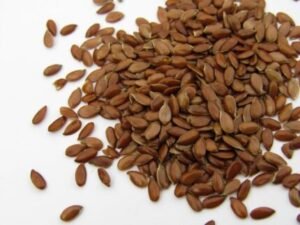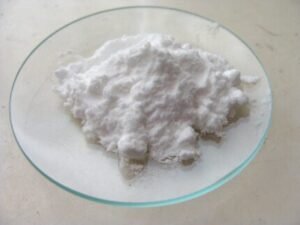Medically reviewed by Dr. Ramesh Gaddam, M.D. — Written by Sumalatha, D.N.H.E
Constipation is a common digestive issue characterized by infrequent bowel movements, difficulty passing stools, or the sensation of incomplete evacuation. It occurs when the stool moves too slowly through the digestive tract, leading to the absorption of excess water and the formation of hard, dry stools. There are so many home remedies you can try to relieve constipation naturally.
Natural Remedies
When dealing with constipation, simple home remedies can offer relief.
1. Increase Fiber Intake
Increasing fiber intake is a simple and effective way to promote regular bowel movements and prevent constipation.

Here are some specific examples of fiber-rich foods that you can incorporate into your diet:
Whole Grains:
Brown rice, Quinoa, Oats, Whole wheat bread, Barley
Fruits:
Apples (with the skin), Berries (strawberries, blueberries, raspberries), Bananas, Oranges, Prunes
Vegetables:
Broccoli, Carrots, Spinach, Brussels sprouts, Sweet potatoes
Legumes:
Lentils, Chickpeas, Black beans, Kidney beans, Peas
Nuts and Seeds:
Almonds, Chia seeds, Flaxseeds, Sunflower seeds, Pumpkin seeds
Whole Grain Cereals:
Choose cereals that are high in fiber and low in added sugars.
High-Fiber Snacks:
Air-popped popcorn, Raw vegetables with hummus, Trail mix with nuts and dried fruits
Fiber Supplements:
If it’s challenging to get enough fiber from your diet, consider fiber supplements like psyllium husk, methylcellulose, or wheat dextrin.
However, it’s essential to consult with a healthcare professional before using supplements.
| Check out Best Nuts and Seeds |
2. Stay Hydrated
Staying hydrated is crucial for maintaining overall health and plays a significant role in preventing constipation.

Here are some tips to ensure you stay adequately hydrated:
Water Intake:
Drink at least 8 cups (64 ounces) of water per day, but individual needs may vary based on factors like age, climate, and physical activity level.
Timing Matters:
Sip water consistently throughout the day rather than consuming large amounts at once. This helps maintain hydration levels steadily.
Include Hydrating Foods:
Consume water-rich foods such as fruits (e.g., watermelon, oranges, cucumber) and vegetables (e.g., celery, lettuce).
Herbal Teas:
Include herbal teas, such as peppermint or chamomile, as they contribute to your overall fluid intake.
Limit Dehydrating Beverages:
Reduce the intake of caffeinated and alcoholic beverages, as they can contribute to dehydration.
Carry a Water Bottle:
Keep a reusable water bottle with you throughout the day to make it easier to stay hydrated, especially when on the go.
Monitor Urine Color:
Check the color of your urine. Pale yellow or straw-colored urine usually indicates adequate hydration, while dark yellow may suggest dehydration.
Increase Fluids During Exercise:
Drink additional water when engaging in physical activities to replace fluids lost through sweat.
Hydrate in Hot Weather:
During hot weather, increase your fluid intake to compensate for increased water loss through sweating.
Listen to Your Body:
Pay attention to your body’s signals for thirst and drink water when you feel thirsty.
Proper hydration softens stools, making them easier to pass and helping to prevent constipation.
It also contributes to various bodily functions, including digestion.
Be mindful of your daily water intake as a fundamental aspect of maintaining good overall health.
3. Prune Juice
Prune juice is well-known for its natural laxative properties and its effectiveness in relieving constipation.

Here’s how you can use prune juice to alleviate constipation:
Regular Consumption:
Drink a small glass (about 4 to 8 ounces) of prune juice regularly, preferably in the morning. This can help stimulate bowel movements.
Gradual Increase:
If you haven’t been consuming prune juice regularly, start with a smaller amount and gradually increase it to allow your body to adjust.
Natural Sorbitol Content:
Prunes and prune juice contain natural sugars like sorbitol, which have a mild laxative effect.
Sorbitol helps draw water into the colon, softening the stool and promoting bowel movements.
Hydration:
It’s essential to drink water along with prune juice to stay hydrated, as increased fiber and sorbitol intake can contribute to fluid loss.
Include Fiber-Rich Foods:
Complement prune juice consumption with a diet rich in fiber from fruits, vegetables, and whole grains for comprehensive constipation relief.
Consultation with Healthcare Provider:
If you have underlying health conditions, are pregnant, or are on medications, consult with your healthcare provider before adding prune juice to your routine.
Limit Intake if Diabetic:
If you have diabetes, be mindful of the natural sugars in prune juice.
Consider the impact on blood sugar levels and consult with your healthcare provider.
Individual Tolerance:
Prune juice may work differently for individuals.
Some people may experience relief with a small amount, while others may need more. Adjust the quantity based on your body’s response.
4. Warm Water with Lemon
Starting your day with a glass of warm water mixed with lemon juice is a popular and refreshing practice that offers potential digestive benefits.

Here’s how this simple ritual can contribute to digestive health:
Hydration:
The warm water helps rehydrate your body after a night’s sleep, and adequate hydration is crucial for optimal digestive function.
Lemon’s Citric Acid:
The citric acid in lemon may stimulate the production of digestive enzymes, supporting the breakdown of food in the stomach.
Vitamin C Content:
Lemons are rich in vitamin C, an antioxidant that may have additional health benefits for the immune system and overall well-being.
Alkalizing Effect:
Despite being acidic in nature, lemons can have an alkalizing effect in the body, which some people believe promotes a more balanced pH environment for digestion.
Aids in Detoxification:
Lemon water is often associated with supporting liver function and promoting the elimination of toxins from the body.
Promotes Bowel Movements:
Some individuals find that the combination of warm water and lemon can help stimulate bowel movements, aiding in regularity.
Morning Ritual:
Establishing a morning routine that includes warm water with lemon can also serve as a mindful and positive start to the day.
Considerations:
If you have acid reflux or a sensitive stomach, it’s advisable to monitor how your body responds to lemon water, as citrus acidity can affect some individuals differently.
5. Aloe Vera Juice
Aloe vera juice is derived from the succulent leaves of the aloe vera plant and is known for its potential mild laxative effect and other digestive benefits.

Here’s how you can consider incorporating aloe vera juice for digestive health:
Quality Aloe Vera Juice:
Ensure that you use high-quality, pure aloe vera juice without added sugars or artificial ingredients.
Look for products specifically labeled for internal consumption.
Start with Small Amounts:
Begin with a small amount, such as one to two ounces, to assess your body’s response.
Some people may be more sensitive to the laxative effects of aloe vera.
Guidance from Healthcare Professional:
Before adding aloe vera juice to your routine, especially if you have underlying health conditions, are pregnant, or are on medications, consult with your healthcare provider.
They can provide personalized advice based on your health status.
Hydration:
Drink plenty of water along with aloe vera juice to stay hydrated, as increased fluid intake is essential for overall digestive health.
Time of Consumption:
Some individuals find it beneficial to consume aloe vera juice in the morning or before meals.
Experiment with timing to see what works best for you.
Observe Individual Tolerance:
Monitor how your body responds to aloe vera juice. While it may have a mild laxative effect for some, individual tolerance can vary.
Potential Benefits:
Aloe vera juice is believed to have anti-inflammatory properties and may contribute to a healthy digestive system. Some people use it to address issues like constipation or indigestion.
Cautions:
Excessive consumption of aloe vera juice or using products not meant for internal use can lead to side effects. Follow recommended serving sizes and guidelines.
Summary:
It’s important to note that while some individuals may find aloe vera juice beneficial for digestive health, it’s not suitable for everyone, and its use should be approached cautiously.
Always seek guidance from a healthcare professional before adding new supplements or remedies to your routine, especially if you have pre-existing health conditions.
6. Castor Oil as a Natural Laxative
Castor oil is a natural remedy that has been used for its laxative properties. It’s derived from the seeds of the castor plant (Ricinus communis).

While it can be effective in relieving constipation, it should be used cautiously and under supervision due to its potency.
Here are some guidelines for using castor oil as a natural laxative:
Small Dosage:
Start with a small amount, typically around a teaspoon.
Avoid exceeding the recommended dosage to prevent potential side effects.
Timing:
It’s often taken on an empty stomach in the morning to allow time for it to take effect before consuming food.
Mixing with Juice:
Some people prefer to mix castor oil with a small amount of juice to improve its taste.
However, keep in mind that the taste can be strong, and it may still be unpleasant for some.
Supervision and Consultation:
Use castor oil under the supervision and guidance of a healthcare professional.
They can help determine an appropriate dosage based on your individual needs and health status.
Hydration:
Drink plenty of water after taking castor oil to stay hydrated, as it can lead to fluid loss.
Potential Side Effects:
Be aware of potential side effects, including cramping, nausea, and diarrhea. If you experience severe discomfort or adverse effects, seek medical attention.
Not Suitable for Everyone:
Pregnant women, individuals with certain medical conditions, or those taking specific medications should consult with a healthcare professional before using castor oil.
Avoid Prolonged Use:
Castor oil is not recommended for prolonged or frequent use, as it can lead to dependency and nutrient malabsorption.
While castor oil can be effective in providing relief from constipation, its potent nature and potential side effects warrant caution.
Summary:
Always seek guidance from a healthcare professional before using castor oil as a laxative, and only use it under their supervision and recommendations.
It’s essential to consider individual health conditions and circumstances before incorporating any potent remedy into your routine.
7. Yogurt with Probiotics
Yogurt containing probiotics is a popular and tasty way to support digestive health.

Probiotics are beneficial bacteria that can have various positive effects on the gut microbiome.
Here’s how you can incorporate yogurt with probiotics into your diet for digestive benefits:
Choose Probiotic-Rich Yogurt:
Look for yogurt labeled as containing live and active cultures or specifically mentioning probiotics.
Greek yogurt, kefir, and other fermented dairy products are often good sources.
Diverse Probiotic Strains:
Select yogurts that contain a variety of probiotic strains for a more comprehensive impact on gut health.
Regular Consumption:
Include yogurt with probiotics in your regular diet.
Consuming it daily can help maintain a healthy balance of gut bacteria.
Add Fresh Fruits or Nuts:
Enhance the nutritional value by adding fresh fruits (such as berries or banana slices) or nuts to your yogurt.
This adds fiber and additional nutrients.
Avoid Excessive Sugar:
Be mindful of added sugars in flavored yogurts, as excessive sugar intake can negatively impact gut health.
Opt for plain or low-sugar varieties.
Use as a Snack or Breakfast:
Enjoy yogurt with probiotics as a snack or include it in your breakfast routine for a convenient and tasty way to support digestive health.
Probiotic Supplements:
If you have dietary restrictions or preferences that limit your yogurt intake, consider probiotic supplements.
Consult with a healthcare professional before adding supplements to your routine.
Digestive Benefits:
Probiotics contribute to a balanced gut microbiome, which plays a role in digestion, nutrient absorption, and overall gut health.
Lactose Intolerance Consideration:
If you are lactose intolerant, look for yogurt labeled as lactose-free or consider non-dairy alternatives like soy, almond, or coconut yogurt with added probiotics.
Individual Tolerance:
Monitor how your body responds to yogurt with probiotics. While many people benefit from probiotics, individual responses may vary.
Incorporating yogurt with probiotics into your diet is a delicious and nutritious way to support your digestive system.
Summary:
However, it’s essential to maintain a well-balanced diet overall, including a variety of fiber-rich foods, to promote optimal digestive health.
If you have specific concerns or conditions, consult with a healthcare professional for personalized advice.
8. Flaxseeds for Constipation Relief
Flaxseeds are a versatile and nutritious addition to your diet, known for their high fiber content and potential benefits for digestive health.

Here’s how you can use ground flaxseeds to help alleviate constipation:
Ground Flaxseeds:
Purchase ground flaxseeds or grind whole flaxseeds in a coffee grinder or blender before consumption. Grinding enhances the absorption of nutrients, including fiber.
Mix with Water:
Mix one to two tablespoons of ground flaxseeds with a glass of water and consume. Ensure you drink additional water throughout the day to support the fiber’s effectiveness.
Add to Meals:
Sprinkle ground flaxseeds on yogurt, cereal, oatmeal, or salads to increase the fiber content of your meals.
Include in Smoothies:
Blend ground flaxseeds into smoothies for an added nutritional boost and to enhance the fiber content.
Baking:
Incorporate ground flaxseeds into baked goods such as muffins, bread, or pancakes to increase their fiber content.
Considerations for Oil:
Flaxseed oil, while rich in omega-3 fatty acids, does not provide the same fiber content as ground flaxseeds. If your goal is to address constipation, focus on consuming ground flaxseeds.
Stay Hydrated:
As with any high-fiber food, it’s essential to drink plenty of water when incorporating ground flaxseeds into your diet to prevent potential digestive discomfort.
Gradual Incorporation:
If you’re not used to consuming significant amounts of fiber, introduce flaxseeds gradually to allow your digestive system to adjust.
Rich in Omega-3 Fatty Acids:
Apart from fiber, flaxseeds are an excellent source of omega-3 fatty acids, providing additional cardiovascular and overall health benefits.
Consultation with Healthcare Professional:
If you have any existing health conditions or concerns, consult with a healthcare professional before making significant changes to your diet.
Flaxseeds’ combination of fiber and other nutrients can contribute to digestive health and help alleviate constipation.
Summary
However, individual responses may vary, and it’s crucial to maintain a balanced diet, including various fiber sources, for overall digestive well-being.
If constipation persists or if you have specific health concerns, seek advice from a healthcare professional.
9. Molasses for Mild Laxative Effect
Molasses, a dark and sweet syrup derived from the processing of sugar cane or sugar beets, contains various minerals, including magnesium.

Here’s how you can use molasses to potentially act as a mild laxative:
Choose Unsulfured Molasses:
Opt for unsulfured molasses, as it retains more of its natural mineral content compared to sulfured molasses.
Mix with Warm Water:
Stir a tablespoon of molasses into a cup of warm water. The warmth can enhance the mixing process.
Morning Consumption:
Consume the mixture in the morning on an empty stomach for potential mild laxative effects.
Gradual Introduction:
If you’re new to using molasses, start with a smaller amount and gradually increase as needed, monitoring your body’s response.
Stay Hydrated:
Drink additional water throughout the day to stay hydrated, as adequate fluid intake is crucial for digestive health.
Nutrient Content:
Apart from magnesium, molasses also contains other minerals like iron, calcium, and potassium, providing additional nutritional benefits.
Consultation with Healthcare Professional:
If you have underlying health conditions, are pregnant, or are on medications, consult with your healthcare provider before using molasses as a remedy.
Dietary Considerations:
Be mindful of your overall diet and ensure you are incorporating a variety of fiber-rich foods for comprehensive digestive health.
Natural Sweetener:
Molasses can also serve as a natural sweetener in various recipes, providing a rich, robust flavor.
Individual Responses May Vary:
While some individuals may find relief from constipation with molasses, individual responses can vary.
It may not be suitable for everyone.
It’s important to note that while molasses contains magnesium, which can have a mild laxative effect, it should be used cautiously and in moderation.
Summary:
Excessive intake may lead to undesirable side effects. As with any natural remedy, consult with a healthcare professional before incorporating molasses into your routine, especially if you have specific health concerns or conditions.
10. Herbal Teas for Digestive Benefits
Certain herbal teas, such as peppermint or ginger tea, are known for their potential digestive benefits and may help alleviate constipation.

Here’s how you can incorporate herbal teas into your routine for digestive health:
Peppermint Tea:
Peppermint tea is often used to soothe digestive discomfort, relieve gas, and promote overall digestive well-being.
Ginger Tea:
Ginger tea is known for its anti-inflammatory properties and may help stimulate digestion.
It can also be effective in relieving nausea and gastrointestinal discomfort.
Chamomile Tea:
Chamomile tea has mild sedative properties and may help relax the muscles in the digestive tract, potentially easing constipation.
Fennel Tea:
Fennel tea is believed to have carminative properties, helping to reduce gas and bloating.
It may contribute to overall digestive comfort.
Dandelion Root Tea:
Dandelion root tea may act as a mild laxative and is often used to promote healthy digestion.
Licorice Root Tea:
Licorice root tea may have mild laxative effects and can also soothe digestive discomfort.
Lemon Balm Tea:
Lemon balm tea may help relax the digestive tract and alleviate symptoms of indigestion.
Prepare the Tea:
Use dried herbs or tea bags to prepare herbal teas. Steep them in hot water for a few minutes, following package instructions for optimal flavor and benefits.
Limit Caffeine:
Consider herbal teas as caffeine-free alternatives to traditional teas, especially in the evening.
Stay Hydrated:
In addition to herbal teas, maintain overall hydration by drinking plenty of water throughout the day.
Regular Consumption:
Incorporate herbal teas into your daily routine for consistent digestive support.
Individual Responses May Vary:
While many people find relief from digestive discomfort with herbal teas, individual responses can vary. It’s essential to monitor how your body reacts to different teas.
If you have specific health conditions or concerns, consult with a healthcare professional before relying solely on herbal teas for digestive relief.
These teas can be a pleasant addition to a well-balanced diet and lifestyle, promoting overall digestive health.
11. Epsom Salt Bath
Soaking in a warm bath with Epsom salts is a well-known practice that may offer relaxation benefits and, for some individuals, contribute to bowel movements.

Here’s how you can use an Epsom salt bath for potential digestive support:
Choose High-Quality Epsom Salts:
Select Epsom salts that are high quality and suitable for use in baths. These salts are composed of magnesium and sulfate.
Run a Warm Bath:
Fill your bathtub with warm water. Ensure that the water temperature is comfortable for you.
Add Epsom Salts:
Add Epsom salts to the bathwater. A common recommendation is around 1 to 2 cups of Epsom salts per standard-sized bathtub, but you can adjust the amount based on personal preference.
Dissolve Epsom Salts:
Stir the water to help dissolve the Epsom salts and distribute them evenly in the bath.
Soak for 15-20 Minutes:
Relax in the bath for 15 to 20 minutes.
Allow the warmth of the water and the magnesium from the Epsom salts to be absorbed through your skin.
Stay Hydrated:
Drink water before and after the bath to stay hydrated, as a warm bath can lead to fluid loss.
Potential Bowel Movements:
Some individuals find that the relaxation induced by an Epsom salt bath, coupled with the potential absorption of magnesium, may contribute to bowel movements.
Caution for Certain Conditions:
If you have specific health conditions, such as kidney problems or heart issues, consult with a healthcare professional before using Epsom salts in baths.
Mindful Bathing:
Use the time in the bath as a mindful and calming experience.
Consider incorporating aromatherapy with essential oils for added relaxation.
Individual Responses May Vary:
While Epsom salt baths can be beneficial for many, individual responses may vary. Some people may find relief from constipation, while others may not experience the same effects.
It’s important to note that while Epsom salt baths can be a relaxing and enjoyable self-care practice, they may not work as a remedy for everyone and should not replace other established methods for managing constipation.
If you have persistent digestive issues or concerns, consult with a healthcare professional for personalized advice and guidance.
12. Dandelion Tea
Dandelion tea, derived from the leaves or roots of the dandelion plant, is believed to have various health benefits, including potential mild laxative effects.

Here’s how you can include dandelion tea as part of a home remedy routine for digestive health:
Choose Quality Dandelion Tea:
Select high-quality dandelion tea made from dried dandelion leaves or roots. Consider organic options for a clean and natural choice.
Prepare Dandelion Tea:
Follow the instructions on the tea packaging for preparing dandelion tea.
Generally, you can steep dandelion tea bags in hot water for a few minutes.
Limit Additives:
To fully experience the potential benefits, drink dandelion tea without adding excessive sweeteners or cream.
However, you can adjust the taste to your liking.
Consistent Consumption:
Include dandelion tea in your regular routine.
Drinking it consistently may provide ongoing support for digestive health.
Hydration:
Stay hydrated by drinking water along with dandelion tea to promote overall digestive well-being.
Mindful Consumption:
Use the time you spend drinking dandelion tea as a moment for mindfulness.
Enjoy the flavors and allow yourself to relax.
Considerations for Certain Conditions:
If you have liver or gallbladder issues or are taking medications, consult with a healthcare professional before incorporating dandelion tea into your routine.
Individual Responses May Vary:
While some individuals may experience mild laxative effects from dandelion tea, individual responses can vary.
It may not have the same impact on everyone.
Balance with a Healthy Diet:
Complement the use of dandelion tea with a well-balanced diet that includes a variety of fiber-rich foods for comprehensive digestive health.
Monitor Effects:
Pay attention to how your body responds to dandelion tea.
If you experience adverse effects or if constipation persists, consult with a healthcare professional.
Summary:
Dandelion tea, with its potential mild laxative properties, can be a natural and soothing addition to your home remedy routine.
However, it’s essential to approach it with a balanced perspective and consider its place alongside other healthy lifestyle practices for optimal digestive well-being.
If you have specific health concerns, seek guidance from a healthcare professional.
13. Baking Soda Solution
A baking soda solution, when consumed in moderation, may have alkalizing effects on the digestive system, potentially neutralizing stomach acid.

Here’s how you can use a baking soda solution to promote potential bowel movements:
Choose High-Quality Baking Soda:
Select baking soda that is pure and free from additives for this remedy.
Mixing the Solution:
Dissolve a teaspoon of baking soda in a glass of warm water. Ensure the baking soda is completely dissolved.
Consume on an Empty Stomach:
For potential digestive benefits, consume the baking soda solution on an empty stomach, preferably in the morning before eating.
Stay Hydrated:
Drink additional water throughout the day to stay hydrated, as the alkalizing effects may lead to increased fluid loss.
Monitor Sodium Intake:
Be mindful of your overall sodium intake, especially if you have dietary restrictions or health conditions that require sodium moderation.
Consultation with Healthcare Professional:
If you have high blood pressure, kidney problems, or other health concerns, consult with a healthcare professional before using baking soda solutions, as they contain sodium.
Individual Responses May Vary:
While some individuals may find relief from constipation with a baking soda solution, individual responses can vary. It may not have the same effect for everyone.
Caution for Certain Conditions:
Avoid using baking soda solutions if you have underlying health conditions like hypertension or kidney issues without consulting with a healthcare professional.
Avoid Prolonged Use:
Prolonged or frequent use of baking soda solutions is not recommended, as excessive sodium intake can have adverse effects on health.
Combine with Dietary Fiber:
Complement the use of a baking soda solution with a well-balanced diet rich in fiber for comprehensive digestive health.
Summary:
It’s important to approach the use of baking soda solutions cautiously and avoid excessive consumption due to the sodium content.
While it may provide relief for some individuals, it should not replace other established methods for managing constipation.
If you have persistent digestive issues or concerns, consult with a healthcare professional for personalized advice and guidance.
15. Regular Exercise for Bowel Health
Physical activity is not only essential for overall health but can also have positive effects on bowel movements and digestive well-being.

Here’s how incorporating regular exercise into your routine can support bowel health:
Aerobic Exercise:
Engage in aerobic activities such as walking, jogging, cycling, or swimming. These exercises stimulate the muscles in your abdomen and can promote bowel movements.
Consistent Routine:
Establish a consistent exercise routine. Regularity in physical activity can contribute to regularity in bowel habits.
Core-Strengthening Exercises:
Include core-strengthening exercises like planks, crunches, or yoga poses that target abdominal muscles. A strong core can support digestive function.
Brisk Walking:
Even a simple activity like brisk walking can be effective in promoting bowel movements. Aim for at least 30 minutes of moderate-intensity exercise most days of the week.
Stay Hydrated:
Maintain proper hydration during and after exercise. Water helps soften stools and facilitates smoother bowel movements.
Incorporate Variety:
Include a variety of exercises to engage different muscle groups. This can enhance overall muscle tone and contribute to healthy digestion.
Listen to Your Body:
Pay attention to how your body responds to exercise. If you experience discomfort or pain, modify your routine and consult with a healthcare professional if needed.
Avoid Strenuous Exercise After Meals:
While regular exercise is beneficial, avoid strenuous activities immediately after meals, as it may interfere with the digestive process.
Consultation:
If you have existing health conditions or concerns, consult with a healthcare professional before starting a new exercise regimen.
Mind-Body Exercises:
Practices like yoga or tai chi not only provide physical activity but also incorporate relaxation techniques, which can positively impact digestion.
Consistency is Key:
Consistency in your exercise routine is crucial for reaping long-term benefits. Find activities you enjoy to make regular exercise sustainable.
Regular physical activity contributes to overall health, and its positive effects extend to the digestive system.
It helps maintain healthy muscle tone, supports regular bowel movements, and can reduce the risk of constipation.
If you have specific health concerns or conditions, seek advice from a healthcare professional before starting a new exercise program.
Conclusion
While these home remedies can provide relief for mild constipation, it’s important to consult with a healthcare professional if symptoms persist or if you have any underlying health conditions.
Additionally, individuals should be cautious with certain remedies, especially in cases of pregnancy or existing medical conditions, and seek guidance from a healthcare provider.
Medically reviewed by Dr. Ramesh Gaddam, M.D.

General Physician, Diabetologist, and Critical Care Specialist.
Discover more from Health Build-Up
Subscribe to get the latest posts sent to your email.

Pingback: Wood Apple (Bael) Nutrition, Benefits, Uses, Side Effects
Pingback: Brinjal (Egg Plant) Benefits, Nutrition, Uses, Side Effects
Pingback: Hemorrhoids (Piles): Causes, Symptoms, Types (9 Best Tips) »
Pingback: Constipation: Symptoms, Causes, Treatment & Prevention